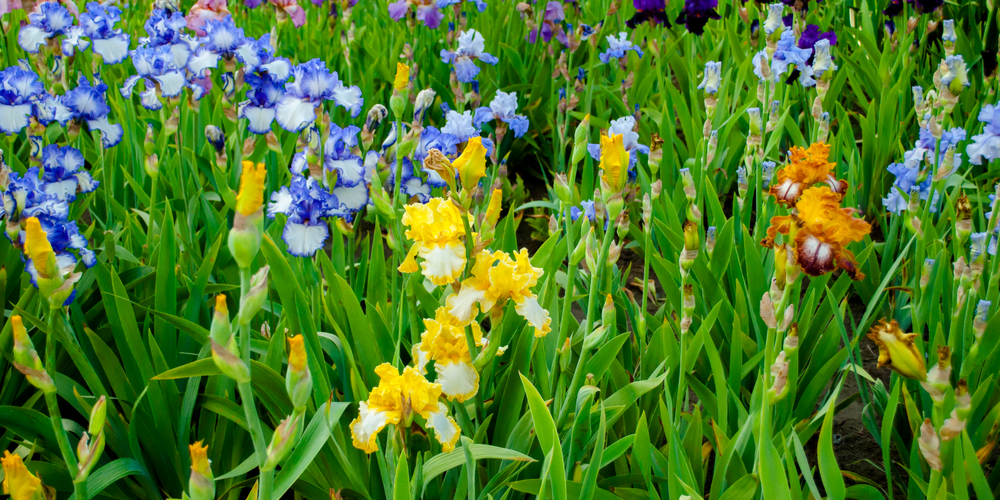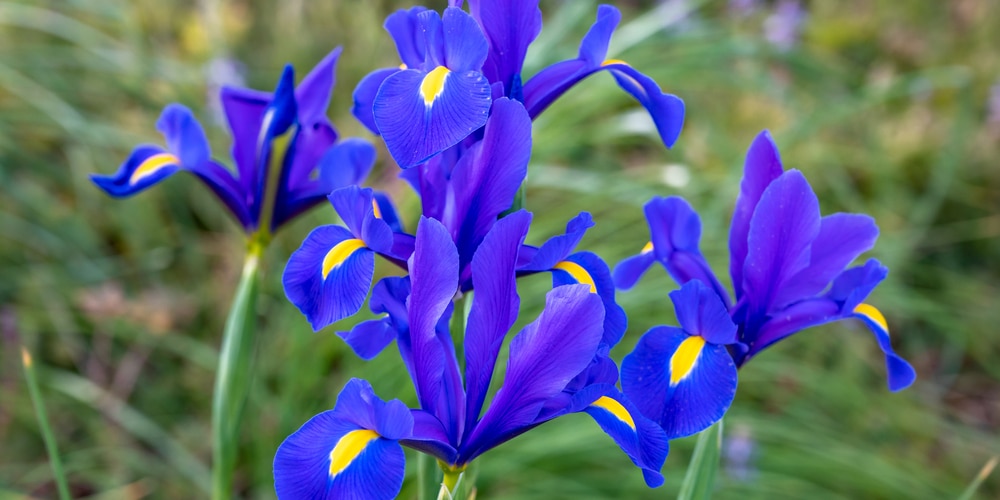You may have seen lovely deer in documentaries or like to picture them as cute animals. And you are not far from the truth: these majestic mammals are gorgeous.
However, if you live next to a forest and have a garden to grow, you may also know how destructive they can get. Or you may have heard stories of frustrated gardeners that have to re-organize their yards after a “visit” from one (or more) of these animals.
Indeed, deer can become a menace to your garden, which might be frustrating, especially when keeping your garden tidy. Luckily, like humans, deer have their preferences when it comes to food. So, they will eat some plants more eagerly than others.
But is iris deer resistant? And how can you prevent these animals from ruining your garden? Keep reading this essential guide we put together for you to find out!
Is Iris a Deer Resistant Plant?
Let’s start specifying that no plants are deer-resistant. After all, a hungry enough animal won’t think twice about munching on any species that crosses its path. Still, some plants may have a flavor or odor that might repel animals. So, if there are other options, they’ll prefer eating them.
Iris are attractive flowering plants that come in various colors and styles. You will have few problems finding a variety that suits your needs and preferences. From German Irises to Siberians, the options are vast. Also, most are relatively easy to grow.
However, the great thing about iris (if you live next to a forest) is that deer don’t like how they taste, meaning they will avoid eating it at all costs.
While they are not toxic to these animals, they are too bitter for deer to enjoy munching on them. Thus, they’ll go for other plants such as hostas or daylilies. So, avoid planting them in your garden if you want to prevent an invasion!
So, in essence, we can say that irises are deer-resistant. However, consider taking other measures to protect your yard from the destruction these animals can cause. Jump to the following sections to get some tips on how to do so.
How To Keep Deer Away From Your Garden
One of the first things you can do to limit deer’s visit to your garden is to install a fence. It must be tall enough to prevent these animals from jumping over. So, don’t place anything shorter than 7 feet. Otherwise, you’ll waste your time. Keep in mind that this solution might be expensive, but it will prove effective.
And to increase your chances, add deer-resistant plants around the fence. Consider adding irises, lavender, bleeding heart, or butterfly bush. You can even mix these plants with others, such as tulips and tomatoes that deer like to munch on. Doing so will minimize issues, trust us.
However, tender new growth is at risk when deer are around. To protect your plants, you may have to take other measures. For instance, many gardeners swear by the use of motion-activated sprinkles that will effectively scare deer away. Alternatively, you can use repellents. Opt for organic products first: garlic and herbs are excellent methods to keep deer at bay.
Which Iris Species Should You Plant In Your Garden?
As we mentioned previously, there are several iris varieties you can grow in your garden. Our favorites include the Japanese Iris, which is evergreen and adapts to several growing conditions, the Bearded Iris (perfect if you live in a hot and dry region), and the Dutch Iris. Of course, there are many more you can choose from, so don’t hesitate to dig deeper into the subject.
Before adding a plant to your garden, make sure it is suitable to live in your USDA hardiness zone. Also, remember that most iris varieties love the sun, so pick a location that gets all these plants to need to thrive.
Under the ideal growing conditions, you may need to divide your plants (or they might become overcrowded and more susceptible to pests and diseases). Doing so will allow you to enjoy your irises for longer (and even gift some plants to your friends!).
Is Iris Deer Resistant: Final Thoughts
Remember to keep your irises moist (without overwatering them) to ensure they thrive. And to boost flower production, deadhead blooms as they appear.
Related Article: White African Iris Care


